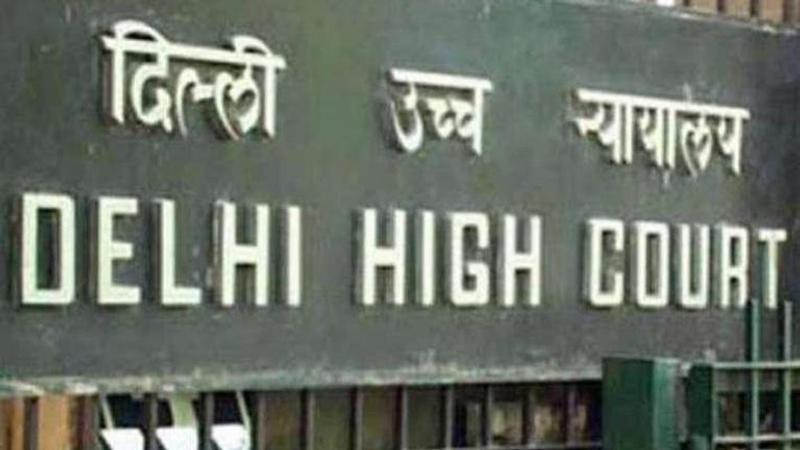Published 20:26 IST, November 23rd 2020
2G scam:Delhi HC dismisses pleas challenging legality of CBI’s appeal against acquittal
The Delhi High Court Monday dismissed various pleas challenging the legality of CBI’s appeal against the trial court verdict in the 2G scam case in which former telecom minister A Raja and others were acquitted and said that it was filed duly by the probe agency.

The Delhi High Court Monday dismissed various pleas challenging the legality of CBI’s appeal against the trial court verdict in the 2G scam case in which former telecom minister A Raja and others were acquitted and said that it was filed duly by the probe agency.
The high court said also held that the amendment to the Prevention of Corruption Act would not apply to the offenses that had already taken place and rejected several other pleas that raised the issue.
It further said that the CBI was not bound to submit or disclose a copy of the record and it cannot be directed to file approval letters or other related documents relating to the CBI appeal.
Justice Brijesh Sethi, who will demit the office on November 30, released the appeals from his court and said that subject to the orders of the Chief Justice, they will be listed before another bench on December 1.
The pleas by various acquitted individuals, including former telecom secretary Siddharth Behura, Kusegaon Fruits and Vegetable Pvt Ltd director Rajiv Agarwal and Kalaignar TV director Sharad Kumar claimed that the CBI’s appeal was not maintainable as there was a lack of requisite sanction/approval from the central government.
The court held that the government is not under any obligation to place on record the approval letters for filing an appeal.
Advocate Vijay Aggarwal, appearing for Rajiv Agarwal, had said he was not challenging the actual decision taken by the government but as to whether was arrived at properly.
The high court also dismissed the pleas by Raja, his then private secretary R K Chandolia, Behura, and Bollywood film producer Karim Morani contending that the CBI’s appeal against their acquittal in the 2G spectrum allocation case has become infructuous with the amendment in the anti-corruption law.
It said an amendment in the Act does not apply to the offenses that had already taken place.
Justice Sethi held that the 2018 amendment to the Prevention of Corruption Act relating to Section 13(1)(d) would not come to the rescue of the acquitted in this appeal.
Amended Act does not apply to offenses that have already taken place. There was no intention to obliterate the earlier law. There is no impediment in hearing the appeals. The applications are dismissed, the judge said, while pronouncing separate verdicts on various applications and petitions.
Raja had told the high court that the CBI's appeal against the acquittals in the 2G case has become infructuous with the coming of the new anti-corruption law. His counsel had told the court that the graft charges leveled against him and others in the case have been omitted in the new Prevention of Corruption Act of 2018 and therefore, the prosecution in the instant matter cannot go on. The CBI had contended that the applications were not sustainable as this specific issue had been raised in the replies filed in response to the agency's appeal.
Section 13(1)(d) of the PC Act was repealed in 2018 when the law was amended by Parliament.
Section 13(1)(d) of the Act dealt criminal misconduct by a public servant if he obtained for himself or for any other person any valuable thing or pecuniary advantage by corrupt or illegal means; or by abusing his position as a public servant, or while holding office as a public servant, obtained for any person any valuable thing or pecuniary advantage without any public interest.
The high court had in October commenced a day-to-day hearing on CBI’s ‘leave to appeal’ against the acquittal of all the individuals and firms. After finishing submissions in the CBI case, the high court would have taken up the Enforcement Directorate’s money laundering case in which all the accused were acquitted by the special court. However, the acquitted individuals and firms kept filing various applications and petitions in between.
Leave to appeal is formal permission granted by a court to a party to challenge a decision in a higher court.
A special court on December 21, 2017, had acquitted Raja, DMK MP Kanimozhi, and others in CBI and ED cases related to the scam. It had acquitted 17 others, including DMK supremo M Karunanidhi's wife Dayalu Ammal, Vinod Goenka, Asif Balwa, film producer Karim Morani, P Amirtham, and Sharad Kumar, director of Kalaignar TV in the ED case.
On the same day, the trial court had also acquitted Behura, Chandolia, Unitech Ltd MD Sanjay Chandra, and three top executives of Reliance Anil Dhirubhai Ambani Group (RADAG) -- Gautam Doshi, Surendra Pipara, and Hari Nair -- in the CBI's 2G case.
Swan Telecom promoters Shahid Usman Balwa and Vinod Goenka and directors of Kusegaon Fruits and Vegetables Pvt Ltd Asif Balwa and Rajiv Agarwal were also acquitted in the CBI case.
The CBI and the Enforcement Directorate have challenged in the high court the acquittal of all the individuals and companies in the 2G scam corruption and money laundering cases by the trial court.
The CBI had also filed an appeal challenging the acquittal of Essar Group promoters Ravi Kant Ruia and Anshuman Ruia and six others in a separate case arising out of the 2G scam probe.
(IMAGE CREDITS: PTI)
Updated 20:26 IST, November 23rd 2020




